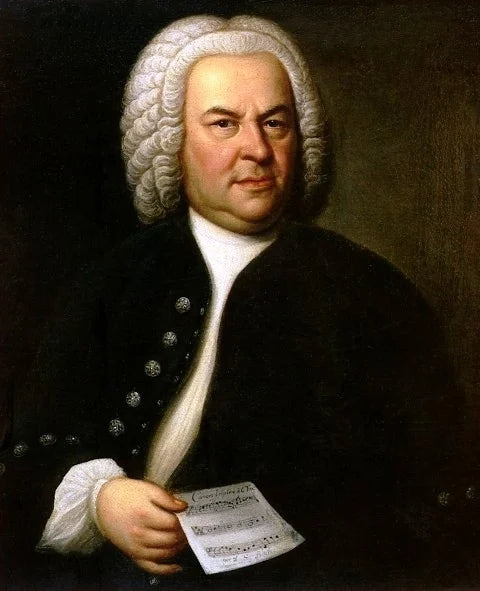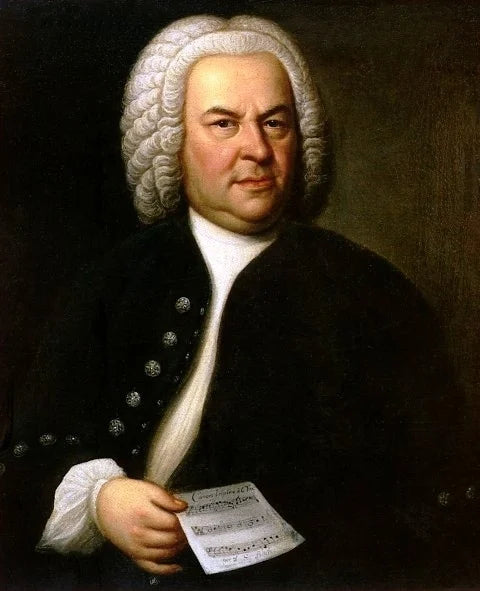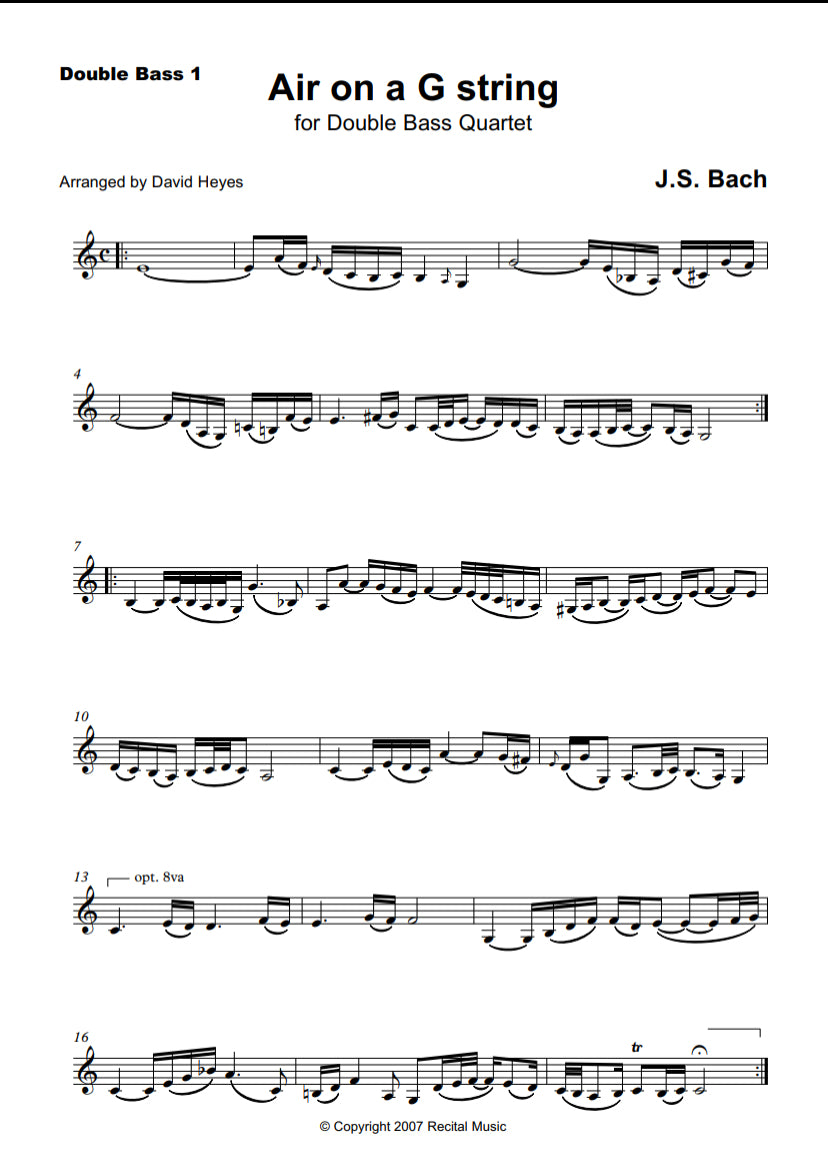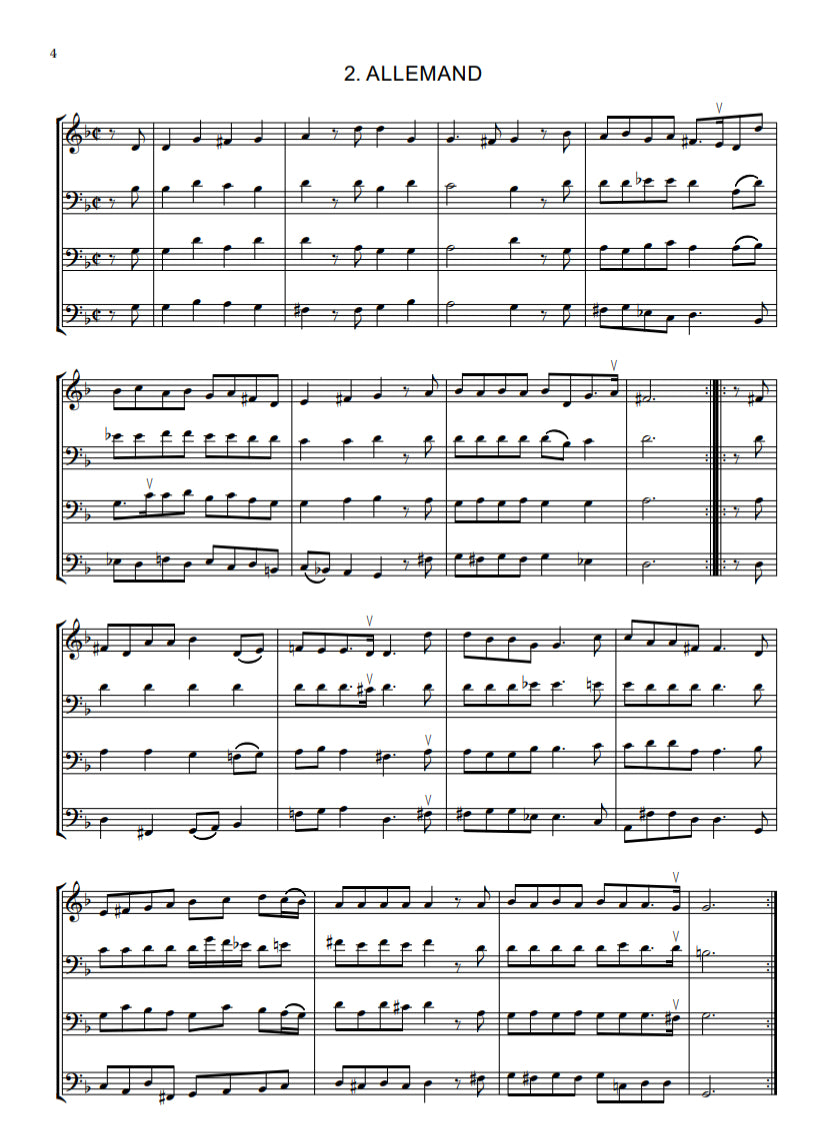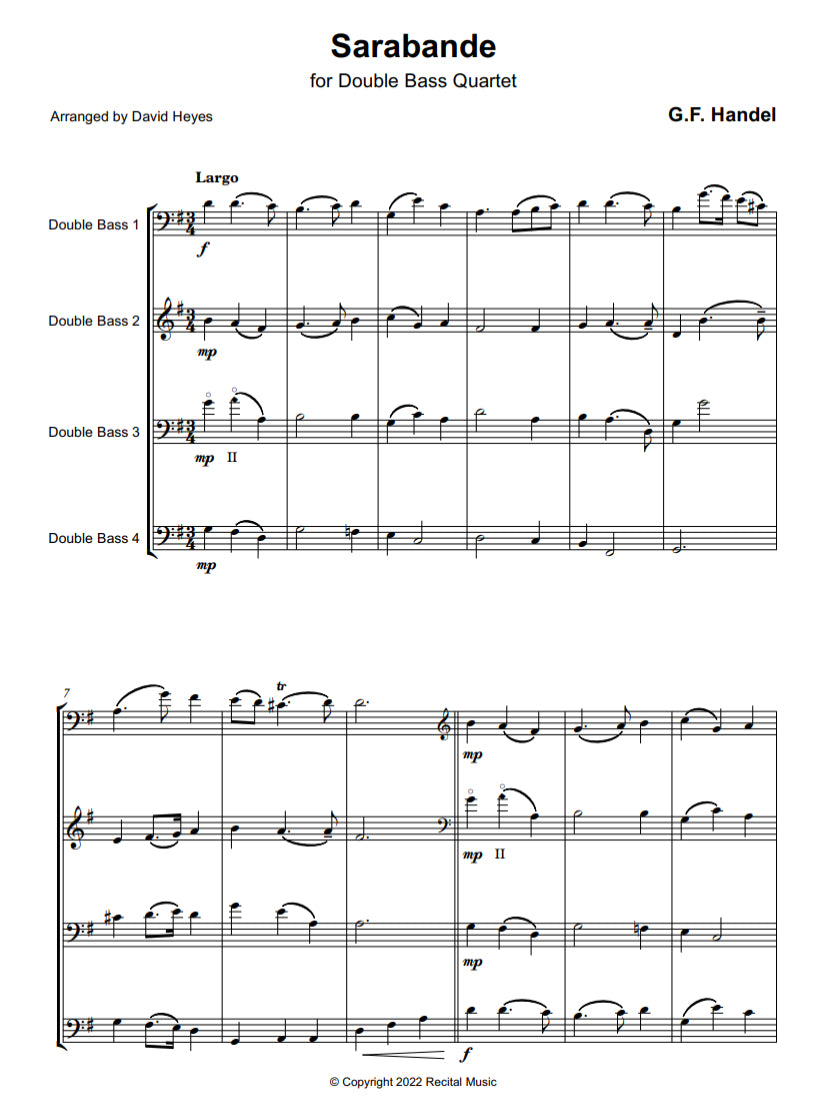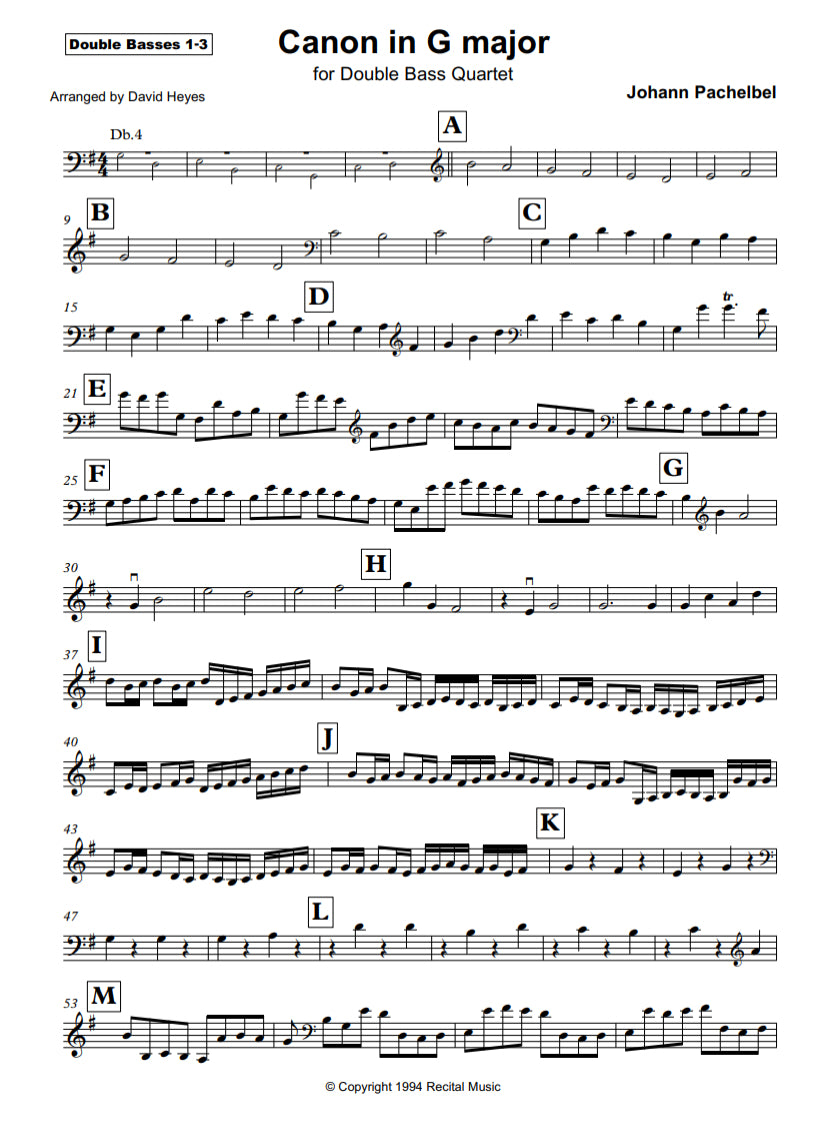David Heyes
Bach, Funck, Handel & Pachelbel: Baroque Bass Quartets (arranged by David Heyes)
Bach, Funck, Handel & Pachelbel: Baroque Bass Quartets (arranged by David Heyes)
Couldn't load pickup availability
About the Collection
Baroque Bass Quartets brings together a wealth of amazing music by Bach, Handel, Funck and Pachelbel, arranged for the intermediate double bass quartet by David Heyes. Ideal as concert repertoire or simply to play with friends, they offer technical and musical challenges in equal measure, and all are audience and player friendly.
Table of Contents
1. J.S. Bach (1685-1750) - Air on a G string
Bach’s Air from Orchestral Suite No.3 in D major is probably one of the most famous melodies ever composed. Originally arranged by David Heyes in the 1980s for The Col Legno Double Bass Ensemble in London and newly edited in 2007, this Baroque 'classic' offers effective challenges for the good intermediate quartet and would be ideal for any concert or occasion.
The majority of the melodic material is played by Bass 1, with wonderfully contrapuntal writing for Bass 2 and 3, grounded by an evocative and iconic pizzicato bass line. Bass 1 and 2 have passages which could be played an octave higher than written which will add height, clarity and added vitality. Bach's Air is almost 300 years old and is as fresh and beautiful as the day it was written. Many players have edited and revised it but still the mastery of the piece shines through. A great addition to the double bass quartet transcription repertoire.
2. G.F. Handel (1685-1759) - Sarabande
Sarabande is originally the third movement of Handel’s Concerto No.3 for oboe and strings, transposed and arranged for double bass quartet by David Heyes, and the edition includes two versions: 1) Double Bass Quartet - the solo line has been shared equally between all four players 2) Solo Double Bass & Double Bass Trio - bass 1 plays the original solo melody accompanied by the other basses.
There are few dynamics included, allowing each quartet to create their own unique performance, and the accompaniment should always be carefully balanced against the solo melody. All players should read from the same score format.
Composed in about 1703 when Georg Frideric Handel (1685-1759) was in Hamburg, it is generally known as Oboe Concerto No.3 today, although in reality it was probably the first of the three concertos to be written. It was first published in Leipzig in 1863, well over 150 years after it was composed.
3. David Funck (1648-c.1699) - Suite for Bass Viols
David Funck was born in Bohemia, spent some time in Italy before returning to Germany, and was an accomplished writer, theorist, and composer. Stricturæ Viola-di Gambicæ is a collection of dance suites for four viols. The forty-three pieces are simple and straightforward dances and are low enough that they can be performed entirely on bass viols.
David Heyes has selected fourteen movements that transcribe well for double bass quartet and players may perform the suite complete or a selection of movements at their discretion. There are few dynamic suggestions allowing performers to create unique performances, with vibrato used sparingly if at all, to create organ-like textures and repeats can be added as necessary.
Johann Pachelbel (1653-1706) - Canon
Three editions in D major (Higher/Lower) and G major are published together, and this is an excellent exercise in ensemble playing. Great fun for all - audience and players alike. Bass 4 plays the repetitive ground bass but, with a little judicious editing, this can be equally shared between the four basses.
Canon in D/G is useful repertoire for players of equal ability and excellent transcription repertoire for any good bass quartet. The musical notation has been changed (no demi-semiquavers/16th notes) for ease of reading.
Johann Pachelbel (1653-1706) was a German composer and teacher; although he composed a wealth of sacred and secular music, he is known primarily for the Canon in D. His music was popular during his lifetime, and was one of the most important composers of the middle Baroque period.
